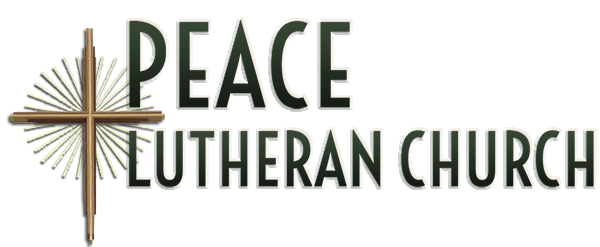– June 4, 2017 – Text: Acts 2:1-42 –
Today is Pentecost. We come to this Sunday that ends the Easter season in the church year anticipating an exuberant festival to celebrate the gift of the Holy Spirit.
Wait… did I say exuberant?? In a Lutheran church??
Let’s be honest here. Lutherans are not known for being exuberant. We have a tendency to be somewhat reserved when we’re in worship, and to avoid what is usually considered to be inappropriate and perhaps even distracting shows of emotion…and exuberance is not something we enthusiastically embrace- although I have to tell you, it’s NOT a universal Lutheran characteristic.
I had the opportunity on several occasions to preach in one of my colleagues’ churches back in Reading, Penn. Hope Lutheran sits in what is probably the poorest neighborhood in the city… and they had the highest weekly worship attendance in that city of 12 Lutheran churches.
Among the most active leaders in that church was a group of African-American women who had embraced the Lutheran church in their adult years, and brought with them the traditions of the churches of their childhoods…some very different traditions from what we know as European and Scandinavian Lutherans.
When I preached at Hope, I could expect to receive instant feedback when these women thought they were hearing Gospel truth:
“Preach it, sister!” “You on fire now… let the Spirit keep moving.”
Now, let me be clear. I’m not telling you that I expect to get that kind of response here at Peace. It’s not what I expect in a Lutheran church. But on this Pentecost Sunday, when we remember a dramatic moment when the Spirit blew through in a particularly exuberant way, I think it’s worthwhile pondering the possibility that when the Holy Spirit blows through, things may not stay as calm and well-ordered as we might like; and that we should most certainly expect to be surprised.
So here’s what may be the first of a few surprises about Pentecost.
The coming of the Holy Spirit didn’t create a new festival to celebrate; in fact, Pentecost was a very old tradition for Jews in the first century. The word “Pentecost” has as its root the Greek word “pente” which means 50. The festival is described in Leviticus, chapter 2: “And from the day after the sabbath, from the day on which you bring the sheaf of the elevation-offering, you shall count off seven weeks; they shall be complete. You shall count until the day after the seventh sabbath, fifty days; then you shall present an offering of new grain to the Lord.
So, the day of Pentecost, rather than being a single day of its own is actually the culmination of a 7 week celebration of a fruitful harvest. The usual translation of Acts 2 is “when the day of Pentecost had come…”
It’s actually more accurate to say that on the 50th day Pentecost is fulfilled.
For a harvest festival, that makes perfect sense. Carry out the harvest, and on the final day, celebrate the bounty of the land. But what might it mean, then, that God chose the fulfillment of Pentecost as the day when the Holy Spirit was given in such a dramatic and powerful way?
Most biblical scholars see a dramatic connection between the gift of tongues given at the first century Pentecost, which enabled everyone gathered that day, through the power of God to understand the message being preached, and the legend of the Tower of Babel, when humanity had dared to believe they could, through their own power and might, build a tower into heaven and claim the divine power as their own. God foiled their plans by confusing the language of the people so that they could not understand each other, and scattered them.
On this new day of Pentecost, God fulfilled the time of Jesus’ ministry by gathering his followers together, “all in one place” and giving them the gift of many languages, so that the message of God’s power revealed through Jesus could be preached and understood by everyone.
As if that wasn’t enough, God put a huge exclamation point on the day by sending the Holy Spirit, not gently or quietly but with a violent rush of wind that filled the entire house where they were gathered, tongues as of fire appeared over their heads, and suddenly they were all talking at once, in languages unknown to them until that moment, a great cacophony of sound, that had gathered pilgrims startled and amazed as they realized that they were hearing a message about the power of God revealed in Jesus – and in their own native languages.
Those who had been scattered, were brought together to hear the message of God’s power revealed in Jesus.
I believe God is probably tolerant of we Lutherans who prefer being reserved and sedate; but it’s dangerous to make the assumption that God will simply allow us to make our own, comfortable way. Look what happened at Babel.
Sometimes God sends the Holy Spirit in powerful, unexpected and unsettling ways to get our attention and to spur us on. But notice, that on the day of Pentecost, the disciples were all together in one place, BECAUSE they had been told to come together, and had been told to expect the Holy Spirit to arrive. They had no idea what that meant, but they were willing to expect the unexpected.
Pentecost mission statement
So here we are. It’s 2,000 years later, and we’re gathered together here, in one place, to celebrate Pentecost, the giving of the Holy Spirit, with the hope that our tradition of being reserved and sedate will not keep us from being open to the power of the Holy Spirit, in whatever way God chooses to come among us.
We have a new mission statement that expresses that desire: “Called by Christ, Gathered to Grow, Sent to Serve.”
“Called by Christ, Gathered to Grow, Sent to Serve”
Called by Christ– Expresses our acknowledgement that we are not part of the body of Christ because we decided this is what we wanted to do. We may have responded to a call, but the first, compelling move was God’s, and whether we recognized it or not, the Holy Spirit, God’s way of being in our midst, is what drew us to Christ.
Gathered to grow- The first impulse is to think “grow in faith;” but recognizing that faith is a gift given, and Jesus admonition that faith the size of a tiny mustard seed is enough to move mountains, “growing” faith is not really an option. But we CAN grow into a deeper and more faithful relationship with God through worship, reading and study of scripture, prayer, and cultivating relationships with sisters and brothers in Christ.
Sent to serve- Being bound to Christ means being called to live in a way that is different from a life that is unconnected to God. It means that every part of our life is committed to serving God and serving our neighbor-from the obvious work at food pantries and homeless shelters, or building affordable homes; or some of the less obvious ways such as recognizing our wealth as a gift from God that is meant to be shared generously, using our skills or talents or our time for the support or uplifting or care of others; or making decisions about the way we will live with the understanding that we have been called to be stewards of a creation that does not belong to us, but to God, and that is intended for the prospering of all humanity.
This mission statement will only help to shape us as disciples if we are willing to receive the Holy Spirit, to having our hearts and minds opened to the ways God is calling us.
It’s not likely to be sedate or reserved; it’s highly likely to mean unsettling and transformative change.
Because the Holy Spirit often comes like a hurricane unleashed, a storm of sound and rushing wind; for when we pray “Come Holy Spirit,” Yahweh will breath on us; the gale of God, the singing fire of life, the singing fire of God!
Amen!
Pr. Eileen


